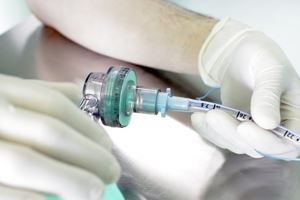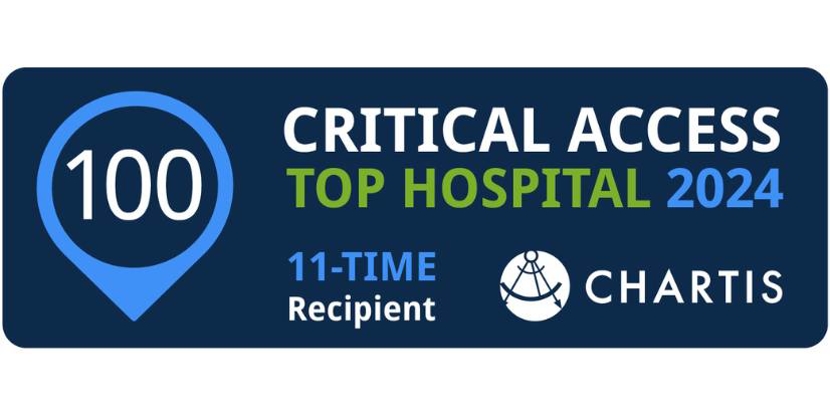Respiratory Care at Myrtue Medical Center
- Posted On:
- Written By: Cydney Shriver

Respiratory Care at Myrtue Medical Center
Early diagnosis of any respiratory issue can help prevent them from becoming severe! Here at Myrtue Medical Center (MMC), we provide respiratory care close to home and in a comfortable environment.
What is Respiratory Therapy?
Respiratory Therapy is a health specialty focused on the treatment, management, and care of the lungs and respiratory system. There are many different types of respiratory therapy, some of which include:
- Long-term care
- Neonatal-pediatrics
- Pulmonary rehabilitation / testing
- Cardiac rehabilitation / testing
- Polysomnography
- Critical care

The respiratory system includes your airways, lungs, and blood vessels, as well as the muscles that power your lungs. All these different parts work together to move oxygen throughout the body and clean out waste gases like carbon dioxide. Some additional functions of the respiratory system include:
- Allows you to talk and to smell
- Warms air to match your body temperature and moisturizes it to the humidity level your body needs
- Delivers oxygen to the cells in your body
- Removes waste gases, including carbon dioxide, from the body when you exhale
- Protects your airways from harmful substances and irritants
What is a Respiratory Therapist?
Respiratory Therapists (RT) are licensed specialists trained in providing care to patients of all ages with breathing and airway problems that can stem from a wide variety of conditions and events. Respiratory therapists work with doctors and nurses to treat patients of all ages, from infants to the elderly. In a typical day, respiratory therapists may:
- Assist with diagnosing lung or breathing disorders
- Evaluate patients and performing tests and studies
- Determine appropriate therapy and treatment options with physicians
- Analyze blood and sputum in the lab
- Manage equipment and devices needed to help people that can’t breathe normally on their own
- Educate patients and families about lung diseases and breathing disorders
To become a respiratory therapist, individuals can choose to get a two-year associate degree or a bachelor’s degree in respiratory therapy. After completing a respiratory therapy degree, the individual must take a certification exam to become a certified respiratory therapist or a registered respiratory therapist. Every state (except Alaska) requires that respiratory therapists also obtain a state license. There are additional certifications available to work with certain populations, such as pediatrics. Interested high school students can prepare for this type of career by taking advantage of science, math, and health courses.
A respiratory therapists can work in hospitals, transitional care facilities, nursing homes, home health agencies, specialized care hospitals, and physicians’ offices. They are required to renew their credentials every two years, which includes continuing education or retesting.
Who May Need a Respiratory Therapist?
If you are experiencing breathing trouble or pain, you should schedule an appointment with your healthcare provider so they can look at your chest, lungs, and heart. If there are signs of respiratory issues, such as an infection, there will be additional measures taken.
When someone is in need of respiratory therapy, their session may involve a breathing assessment, exercise recommendations, and progress monitoring. For example, if an individual has low oxygen levels, this may signal that the respiratory system is not functioning correctly and that they would benefit from respiratory therapy.
Anyone at any age may need to see a respiratory therapist for a number of reasons. A few examples of these are:
- Chronic obstructive pulmonary disease (COPD)
- Asthma
- Acute respiratory distress syndrome. This is a very serious condition that can happen after an injury or illness like COVID-19, which is caused by the new coronavirus
- Bronchitis
- Emphysema
- Cystic fibrosis
- Spinal muscular dystrophy
- Parkinson’s disease
- Amyotrophic lateral sclerosis (Lou Gehrig’s disease)
- Auto accidents or other trauma that prevents you from breathing on your own
- Babies who are born prematurely before their lungs are fully grown
At MMC, we provide in-lab sleep studies, or Polysomnography, and pulmonary function tests. A sleep study is used to diagnose sleep disorders. During the study, your brain waves, the oxygen level in your blood, heart rate, breathing, and eye and leg movements are recorded while you sleep. A pulmonary function tests are noninvasive tests that show how well the lungs are working. This information can help your healthcare provider diagnose and decide the treatment of certain lung disorders. Both of these tests are done at MMC.
Respiratory Care here in Harlan
At MMC, we are lucky to have four Respiratory Therapists:
- John Petsche, BA, RRT, Director of Respiratory Therapy
- Mary Vogt, BS, RRT
- Susan King, CRT
- Dennis Mumm, RRT
- Tawnya Holdsworth, Cardiac Technician
- Susan Erlbacher BS, RRT, PSGT
This health team provides services in all areas of the hospital; Emergency Department, Inpatient, Birthing Center, Outpatient Surgery + Specialty Clinic, and the Rural Health Clinic. These specialists work closely with a patient’s doctor and care team to diagnose and monitor their condition. They are available 24/7 and are ready to help whenever they are called!
Myrtue’s respiratory team provides additional services to patients in the following areas:
- Cardiac testing
- Stress tests, cardiac monitoring (holter + events), etc.
- Pulmonary rehabilitation
- Pulmonary testing
- Sleep Testing

Respiratory therapists are an essential part of our healthcare team! If you need to schedule an appointment with your healthcare provider to go over possible respiratory issues, call us at 712.755.4516. Let’s tackle those respiratory issues before they become severe!
Find additional information about respiratory care at the American Association for Respiratory Care website.


